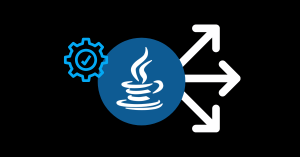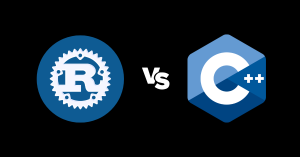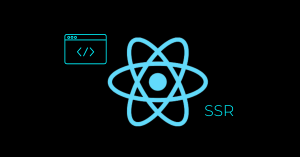Introduction
Developers depend on their ability to build applications on integrated stack of technology as a foundation for their projects. Beginning the development process on top of these standardized building blocks will allow developers to spend more time working on applications rather than starting from scratch and gluing components together.
A common example of these building blocks is called the MEAN stack. This guide will provide you everything you need to know about MEAN stack development and how it can improve your web applications.
What is MEAN Stack Development?
MEAN stack development involves using the MEAN stack to develop scalable web applications. The MEAN stack is a JavaScript-based framework, with MEAN being an acronym for MongoDB, Express, Angular, and Node. These are the four key technologies that make up the layers of the MEAN stack.
- MongoDB: An object-oriented database designed for use with cloud applications.
- Express: A framework for Node(.js) that supports interactions between the front end and database.
- Angular: A client-side JavaScript framework used to create dynamic web applications.
- Node: A JavaScript web server used to build scalable network applications.
MEAN stack developers are able to use their expertise in these technologies to delivery high-quality web applications.
Why Hire MEAN Stack Developers?
Hiring MEAN stack developers can ensure that your web application meets or even exceeds expectations. MEAN stack developers have the expertise needed to deliver high-quality work that is cost-efficient, scalable, and on-time.
These developers are at the forefront of technology trends, ensuring that your web application will benefit from innovative solutions. Hiring developers is a time-consuming process but is well worth the investment.

Advantages of Hiring MEAN Stack Developers
There are many advantages to hiring dedicated MEAN stack developers. These include full-stack development, JavaScript expertise, cost-effective solutions, and scalability.
Full-Stack Development
MEAN stack developers are often capable of handling full-stack development. Full-stack developers rely on using front-end languages like HTML and JavaScript as well as back-end languages like Python and C+.
A full-stack developer has knowledge of the entire spectrum of web development including user interface design, server-side logic, and overall application performance and security. Since many of the skills needed for MEAN stack development overlap, they may be well suited to any full-stack development needed.
JavaScript Expertise
MEAN stack developers must be skilled in JavaScript to do their jobs effectively. JavaScript is one of the main elements of the MEAN stack, so being proficient in the language is a must. MEAN stack developers can effectively use JavaScript Object Notation (JSON) to store and transmit information. These skills make MEAN stack developers more efficient when creating web-based applications.
Cost-Effective Solutions
MEAN stack developers offer an extensive platform for developing website applications. Because the MEAN stack is open-source, it can be used for free, cutting down on licensing and development costs.
Since the MEAN stack is adaptable and reusable, you can also save time and money that goes into creating fresh code each time you want to build an application. Time is money, so producing faster results is a major benefit.
Scalability and Flexibility
MEAN stack developers are able to offer scalable and flexible solutions to complex web application projects. The MEAN stack is inherently scalable, making it a great choice for businesses with growth in mind. MEAN stack developers can accommodate increased user loads and data volumes as the business begins to expand.
Key Skills to Look For
There are some key areas to keep an eye on when hiring a MEAN stack developer. They should be proficient in all of the major technologies involved in the MEAN stack as well as a basic understanding of the MVC architecture.

Proficiency in MongoDB
The first letting in the MEAN stack stands for MongoDB. This database allows the storage of JSON-like documents, typically user details, blog posts, and anything that may need to be indexed and referenced again. Being comfortable writing queries for MongoDB is a key skill that every good MEAN stack developer should have.
Expertise in Express.js
A MEAN stack developer should be an expert at using Express, the back-end JavaScript framework. Being able to use Express effectively allows MEAN stack developers to build web applications faster and in less code.
Strong Knowledge of Angular
MEAN stack developers should also be able to use Angular, the front-end JavaScript framework. This is an important skill that enables developers to populate and manipulate the DOM. All front-end activity is usually handled by Angular, so MEAN stack developers will need to have a good bit of experience to be successful.
Competency in Node.js
Node is an open-source server environment that every MEAN stack developer should be comfortable working in. Node allows web applications to handle data and responses between the client and server sides. This is one of the foundational elements of building most web applications, so proficiency is a must.
Understanding of MVC Architecture
The Model-View-Controller (MVC) is an architectural pattern separating applications into three basic components: the model, view, and controller. This is one of the most commonly used web development frameworks and one that every MEAN stack developer should be aware of or have some experience working with.
The Hiring Process
The hiring process for MEAN stack developers can be a long one, as there are many metrics that must be assessed to ensure the right candidate is found.
Defining Job Requirements
The first step in hiring a MEAN stack developer is determining the job requirements and project goals. Having a clear understanding of your objectives and the requirements of the job can set new hires up for success from the start.
Determine what functionalities and features are required as well as a timeline for the project. Budget constraints and scalability requirements should also be decided on before starting the hiring process.
Where to Find MEAN Stack Developers
Where you hire MEAN stack developers is a major factor. If you are looking to outsource your MEAN stack development, it’s best to partner with a reputable MEAN stack development company or recruitment agency specializing in MEAN stack developers.
Using a MEAN stack development company is the most convenient way to source and hire developers. Research and evaluate companies based on their reputation, portfolios, and experience levels. Choosing a company with a proven track record will ensure that the MEAN stack developer you choose will meet your expectations.
Screening and Interviewing Candidates
There are a few key metrics that MEAN stack developers should be screened for during the hiring process. These include technical assessments, portfolio reviews, and behavioral interviews.
Technical Assessments
Technical assessments should be used to gauge a candidate’s knowledge of basic coding MEAN stack development. Asking for any relevant certifications and training can give insight into a developer’s technical abilities and basic problem-solving skills.
Portfolio Reviews
You can request a portfolio from a candidate that showcases a developer’s work on previous MEAN stack development projects. A strong portfolio will give insight into a candidate’s capabilities, problem-solving skills, and creative ideas. Reviewing their portfolio is a good way to get an overview of the projects that have been successfully completed and delivered.
Behavioral Interviews
Behavioral interviews should also be scheduled to see how well a candidate fits into the current team and workplace culture. Getting to know the developer beforehand is an important step in the hiring process to identify any potential red flags.
Evaluating Technical Skills
Evaluating the technical skills of a MEAN stack developer is an important part of the hiring process. To effectively evaluate the technical skills of a developer, companies can use a combination of coding challenges, live coding sessions, and project-based assignments to measure how well a candidate performs.

Coding Challenges
Coding challenges are a popular way to assess and develop skills. These challenges ensure that a MEAN stack developer is proficient in the MongoDB, Express, Angular, Node, and general JavaScript needed for the development process.
Live Coding Sessions
Live coding sessions are innovative hiring solutions made possible by advancements in video collaboration technology. Now, live coding sessions make it possible to get a real-time assessment of a developer’s skillset under time constraints.
Project-Based Assignments
Project-based assignments can also be assigned during the hiring process. These assignments can be used to measure a developer’s technical skills, organization, and project management skills. Typically, project-based assignments during the hiring process should take no longer than four hours to complete.
Understanding Soft Skills
There is more to a good developer than just raw technical skills. There is a set of soft skills that also needs to be assessed to ensure that a MEAN stack developer is right for the role. Good communication, problem solving, and collaboration skills are vital for success.
Communication
Developers must be able to communicate effectively with other team members, project managers, and end-users of the product. A good MEAN stack developer should be able to communicate with people from all sorts of different backgrounds and cultures. Developers frequently use written communication, so good writing skills are also crucial as a soft skill.
Problem-Solving
Software development is all about solving complex problems. Designing and maintaining web application software requires good problem-solving skills and critical thinking ability. Being on the lookout for developers who want to challenge themselves to solve complex problems can increase the quality of the MEAN stack developers you hire.
Critical thinkers will be aware of any problems they are facing and understand ways to approach possible solutions.
Team Collaboration
Even the best developers in the world may run into trouble if they cannot collaborate well within a team. Good people skills and interpersonal skills are a must-have for MEAN stack developers.
Mastering the art of patience, empathy, and communication is essential when working with large development teams. The more open to collaboration a developer is, the more successful they will be.
Best Practices for Managing MEAN Stack Developers
Some of the best practices for managing MEAN stack developers include adhering to agile methodologies, regular code reviews, and continuous learning and development. Following these best practices ensures an efficient management process to keep developers on track.

Agile Methodologies
Ensuring that MEAN stack developers are using agile methodologies in their development process ensures that applications are built in a fast and incremental fashion. Agile methodologies focus on deploying applications in increments, oftentimes in rapid succession.
This approach can decrease the time needed to complete an application down to only a few months. Using an agile approach ensures that teams work together daily during every stage of the project and stay on track even as conditions change.
Regular Code Reviews
Regular code reviews will help keep track of MEAN stack developers’ progress and any blockers they may be encountering. The code should be reviewed during all phases of development to ensure that any issues are caught early and handled properly.
Continuous Learning and Development
It’s important to keep MEAN stack developers continuously learning so they can continue to improve. Providing learning material access to new technology can ensure the continuous development of web applications using new tools and methodologies.
Performance Feedback
Providing detailed performance feedback can help MEAN stack developers identify areas where they can improve. This feedback is vital for measuring the success of a developer and can help improve productivity and the quality of work delivered. It’s important to be as descriptive as possible when giving performance feedback so it’s clear to the developers what is expected of them and how they are measuring up to those expectations.
Conclusion
Hiring MEAN stack developers can be challenging, as every business has their own specific needs and work cultures that a developer must understand to be successful. Using the strategies in this guide, you can hire not only dedicated MEAN stack developers but also achieve cost-efficient solutions for web application development.
If you are interested in hiring a MEAN stack developer, ParallelStaff can put you in touch with developers and IT specialists experienced in MEAN stack development for your next project. Schedule a call now to get started!
Recap of Benefits
The benefits of hiring a MEAN stack developer include:
- Expertise and experience
- Quality Assurance
- Full-stack development capabilities
- Reduced time-to-market
- Reduced development costs
- Hire .NET Developers: Where to Find the Best Talent - September 10, 2024
- Hire Developers for Your Startup: Finding the Right Fit for Your Team - September 5, 2024
- How Can You Identify the Best MEAN Stack Developers to Hire? - May 27, 2024






